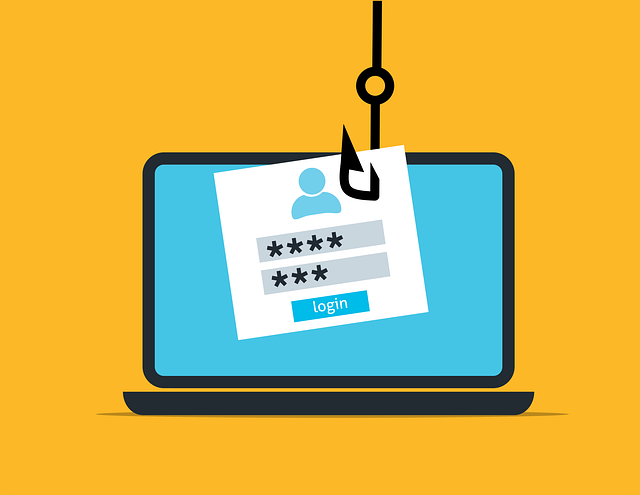Accounting firms are vulnerable to ransomware attacks due to handling sensitive financial data and their critical business role. To defend against these advanced threats, CPAs should implement robust strategies including: advanced threat detection systems, strong password security, multi-factor authentication, regular backups, and employee training on phishing defense. Regular security audits, compliance checks, and incident response planning are also essential for maintaining client trust and ensuring business continuity in the face of evolving cyber risks.
In today’s digital landscape, accounting firms face unique IT security challenges. With sensitive financial data as their primary asset, they’re prime targets for cybercriminals, particularly malicious actors like ransomware. This article delves into the critical strategies and tools needed to fortify their defenses, exploring risks specific to the industry. From robust data backup plans to advanced security software and employee training, we’ll uncover essential measures for CPAs to enhance their ransomware defense and safeguard their digital assets.
- Understanding the Unique Risks Facing Accounting Firms
- The Rise of Ransomware Attacks and Their Impact on CPAs
- Implementing Strong Data Backup Strategies
- Advanced Security Tools for Comprehensive Protection
- Employee Training: A Key Defense Layer
- Regular Security Audits and Incident Response Planning
Understanding the Unique Risks Facing Accounting Firms

Accounting firms face unique challenges when it comes to IT security due to their sensitive financial data and critical role in business operations. With the increasing sophistication of cyber threats, such as ransomware attacks targeting CPAs (Certified Public Accountants), protecting digital assets has become more complex. These firms often deal with vast amounts of client information, making them attractive targets for malicious actors seeking to exploit vulnerabilities.
Ransomware defense is a critical aspect of accounting firm security strategies. Advanced threat detection systems can play a pivotal role in identifying and mitigating these attacks. Additionally, implementing robust password security measures and identity protection solutions tailored for the accounting industry can prevent unauthorized access and data breaches. By adopting these proactive measures, accounting firms can safeguard their digital infrastructure, ensuring business continuity and client trust.
The Rise of Ransomware Attacks and Their Impact on CPAs

In recent years, the rise of ransomware attacks has significantly impacted the accounting industry. As digital transformation has made accounting practices more reliant on sensitive data stored in cloud-based systems and accessible through remote connections, malicious actors have found lucrative targets in these valuable assets. Ransomware, a type of cyberattack that encrypts a victim’s files and demands payment for their release, poses a critical threat to CPAs, who often manage vast amounts of financial data. The consequences can be devastating: disrupted business operations, potential data loss, and substantial financial costs associated with recovery efforts.
To counter these advanced threats, CPAs must implement robust ransomware defense strategies. This includes setting up a well-configured CPA firewall that acts as a barrier between the firm’s network and potential attackers. Additionally, integrating advanced threat detection systems can identify suspicious activities and anomalies, enabling quick response times to mitigate the risks of ransomware infections. Furthermore, training staff on phishing defense techniques is vital; many ransomware campaigns begin with an initial phishing attempt to gain unauthorized access, so empowering CPAs with knowledge to recognize and report such attempts can significantly reduce the risk of successful attacks.
Implementing Strong Data Backup Strategies

In the digital landscape, where accounting firms handle sensitive financial data, implementing robust data backup strategies is paramount in any comprehensive IT security plan for CPAs. This involves regular and secure backups that safeguard against potential ransomware attacks, which have become increasingly sophisticated and prevalent. A reliable backup strategy not only ensures business continuity but also serves as a crucial defense mechanism against data encryption and disruption.
A key component of this strategy is adopting multi-layered backup solutions, including cloud-based archives and local storage. For instance, CPAs can leverage password-protected secure folders and encrypted backups to safeguard their digital assets. Additionally, integrating identity protection measures, such as two-factor authentication, reinforces data security plans for accounting firms. These practices ensure that even if unauthorized access is gained, critical information remains resilient and protected.
Advanced Security Tools for Comprehensive Protection

In today’s digital landscape, advanced security tools are essential for accounting firms to safeguard their sensitive data and digital assets from evolving cyber threats. Beyond basic firewalls and antivirus software, modern IT security strategies require robust ransomware defense mechanisms, given the significant impact of such attacks on businesses. By integrating advanced threat detection systems, CPA firms can proactively identify and mitigate potential risks before they result in costly data breaches or service interruptions.
Compliance-level security is another critical component for these organizations. Implementing strong password security practices, multi-factor authentication, and regular security audits ensures that accounting firms meet industry standards and protect their clients’ information. These measures create a comprehensive defense against malicious activities, thereby fostering trust with clients and promoting operational continuity.
Employee Training: A Key Defense Layer

Employee training is a fundamental aspect of fortifying accounting firms’ digital defenses against evolving cyber threats. In today’s digital landscape, where ransomware attacks and other malicious activities are on the rise, educating employees becomes a powerful line of defense. By empowering staff to recognize potential risks, such as phishing emails or social engineering tactics, firms can significantly reduce the likelihood of successful breaches. Regular training sessions should cover best practices for password management, secure data handling, and protocol for reporting suspicious activity, ensuring that every team member contributes to robust cybersecurity.
Investments in employee awareness programs are particularly crucial for CPAs who deal with sensitive financial information. Implementing tailored security protocols, including strong identity protection measures, can prevent unauthorized access to accounting systems. Additionally, training should emphasize the importance of email protection, as this communication channel is often exploited by cybercriminals. By integrating these security practices into daily operations, accounting firms can create a culture of cybersecurity awareness, leaving fewer opportunities for ransomware and other threats to compromise their digital assets.
Regular Security Audits and Incident Response Planning

Regular Security Audits play a pivotal role in strengthening the digital defenses of accounting firms. These comprehensive assessments help identify vulnerabilities and weaknesses in an organization’s IT infrastructure, enabling proactive measures to prevent potential cyberattacks. By simulating real-world attack scenarios, security experts can uncover hidden risks associated with data access, network configurations, and software updates. Armed with this knowledge, CPAs can implement tailored strategies to fortify their digital assets against evolving threats, particularly the growing concern of ransomware defense.
Incident Response Planning is an integral component of a robust cybersecurity strategy for accounting firms. It involves creating detailed protocols to swiftly address security breaches, minimizing damage and disruption. Efficient incident response plans ensure a structured approach during crises, facilitating effective communication between IT teams, management, and affected clients. This proactive mindset, coupled with regular audits, enhances the overall resilience of accounting practices in managing cyber incidents, including those related to password security and identity protection in accounting. Additionally, with more CPAs adopting cloud-based services, integrating robust cloud security measures into these plans becomes essential to safeguard sensitive financial data stored in remote environments.
